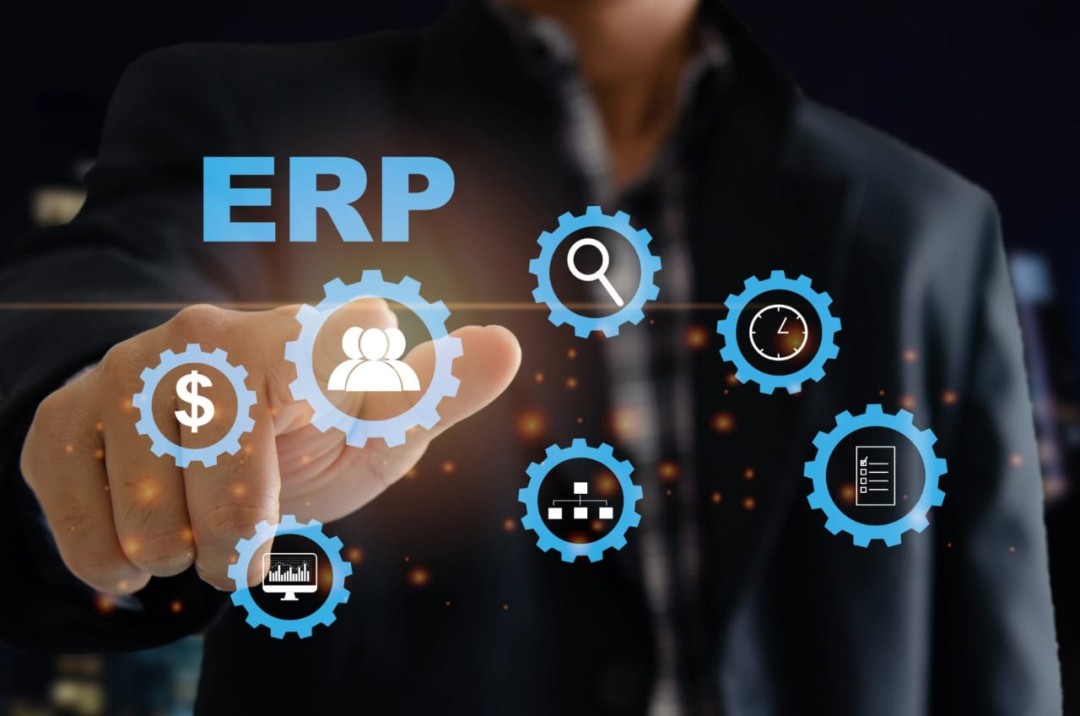
In an era dominated by rapid digital transformation, enterprises are under constant pressure to adapt, optimize, and scale. One of the most effective strategies for achieving smarter growth in 2025 is through custom ERP development. Unlike off-the-shelf solutions, custom ERP (Enterprise Resource Planning) systems are tailored to the specific workflows, industry demands, and operational nuances of a business, allowing organizations to gain a competitive edge through improved agility and efficiency.
Understanding ERP in 2025What is ERP?
ERP systems are integrated software solutions that unify core business processes such as finance, HR, supply chain, inventory management, customer relationships, and more into a single digital platform. These systems serve as the central nervous system of an enterprise, ensuring data consistency, streamlined operations, and real-time insights.
Why Custom ERP in 2025?
With advancements in AI, IoT, big data, and cloud computing, 2025's business landscape demands systems that are not only integrated but also intelligent and scalable. Custom ERP solutions are designed to grow with your organization, offering greater control, enhanced reporting, and flexibility that off-the-shelf platforms struggle to match.
Benefits of Custom ERP Development for Smart Scaling1. Tailored Fit for Business Needs
Every business operates differently. A custom ERP is designed specifically to fit your workflows, ensuring no unnecessary modules or redundant processes. This leads to faster adoption and higher productivity among employees.
2. Scalability and Flexibility
Custom ERP systems are built with your future in mind. As your business expands—whether it's new locations, markets, or services—your ERP can scale seamlessly. Unlike pre-built systems, you control which modules to add, modify, or retire.
3. Cost Efficiency in the Long Run
Although initial costs may seem higher, custom ERP development eliminates licensing fees, reduces the need for third-party integrations, and minimizes inefficiencies—resulting in significant cost savings over time.
4. Better Data-Driven Decision Making
With tailored dashboards and real-time analytics, decision-makers can get instant access to relevant KPIs. This empowers them to make informed decisions that support growth and operational efficiency.
5. Improved Security and Compliance
Off-the-shelf solutions are often vulnerable to mass exploits due to their universal codebase. A custom ERP system, on the other hand, benefits from built-in security protocols, role-based access control, and industry-specific compliance features.
6. Integration with Emerging Technologies
In 2025, businesses are increasingly relying on technologies like AI, machine learning, blockchain, and IoT. A custom ERP can be built to integrate with these advanced tools from the start—allowing smarter automation and predictive analytics.
Key Industries Benefiting from Custom ERP in 2025Manufacturing
Manufacturers benefit from ERP features such as real-time inventory tracking, production scheduling, and machine integration. A custom ERP helps automate quality checks, predictive maintenance, and supplier coordination.
Retail and E-Commerce
Retailers require multi-channel inventory management, personalized customer engagement, and responsive supply chains. A customized ERP can unify online and offline operations, manage logistics, and enhance customer experience.
Healthcare
Healthcare providers must manage sensitive data while complying with strict regulations. Custom ERPs can incorporate HIPAA compliance, EHR integration, and real-time patient management features.
Construction and Real Estate
These industries need robust project management, budgeting, resource allocation, and timeline tracking. A custom ERP can integrate all these functions while supporting mobile access for on-site teams.
Education and E-Learning
Institutions require student lifecycle management, course planning, attendance, and fee collection systems. With a custom ERP, educational providers can personalize learning experiences and administrative workflows.
How AI and Automation Enhance Custom ERP in 2025AI-Powered Insights
AI algorithms analyze vast amounts of enterprise data to generate insights that can improve forecasting, demand planning, and customer engagement strategies.
Robotic Process Automation (RPA)
Repetitive tasks such as invoice processing, payroll, and report generation can be automated, freeing up human resources for strategic initiatives.
Predictive Maintenance
In industries like manufacturing and logistics, IoT-integrated ERPs can monitor equipment and trigger maintenance actions before failures occur.
Smart Inventory Management
AI-driven ERP modules can forecast demand and automate procurement, minimizing stock-outs and excess inventory.
Challenges in Custom ERP Development and How to Overcome Them1. High Initial Investment
While the upfront development cost is higher than purchasing a pre-built ERP, the ROI from customization, efficiency, and scalability outweighs the initial expenses.
2. Time-Intensive Development
Custom ERP development can take several months. To mitigate delays, businesses should follow Agile methodologies and involve cross-functional teams in planning.
3. Change Management
Employees may resist transitioning to a new system. Thorough training, clear communication, and involving users in the design phase can improve acceptance.
4. Maintenance and Upgrades
Custom systems require ongoing support. Partnering with a reliable development team ensures timely upgrades and security patches.
Steps to Implement a Custom ERP in 2025Step 1: Conduct a Business Process Audit
Map out your current workflows and identify inefficiencies. Define your must-have features and growth goals.
Step 2: Choose the Right Development Partner
Work with experienced ERP developers who understand your industry. Look for a company that offers end-to-end development, from planning to post-launch support.
Step 3: Define a Scalable Architecture
Ensure the system is modular, cloud-compatible, and built using modern programming frameworks that support integration with future technologies.
Step 4: Test, Train, and Deploy
Test the system thoroughly with different user groups. Provide comprehensive training to ensure successful adoption before full-scale rollout.
Final Thoughts
As enterprises evolve in 2025, growth isn't just about getting bigger—it's about getting smarter. Custom ERP development empowers organizations to design systems that reflect their unique operations and scale in harmony with business goals. From tailored features and data-driven insights to enhanced automation and integration capabilities, custom ERP is no longer a luxury—it's a strategic necessity.
To stay ahead in a competitive, technology-driven market, businesses must prioritize flexibility, agility, and precision in their operational backbone—and that's exactly what custom ERP systems provide.
For companies looking to invest in future-ready ERP solutions, attract group offers end-to-end ERP software development services tailored to help you scale smarter in 2025 and beyond.
Media Contact
Company Name: Attractgroup
Contact Person: Vlad Terekhov
Email:Send Email
City: New York
Country: United States
Website: https://attractgroup.com/
